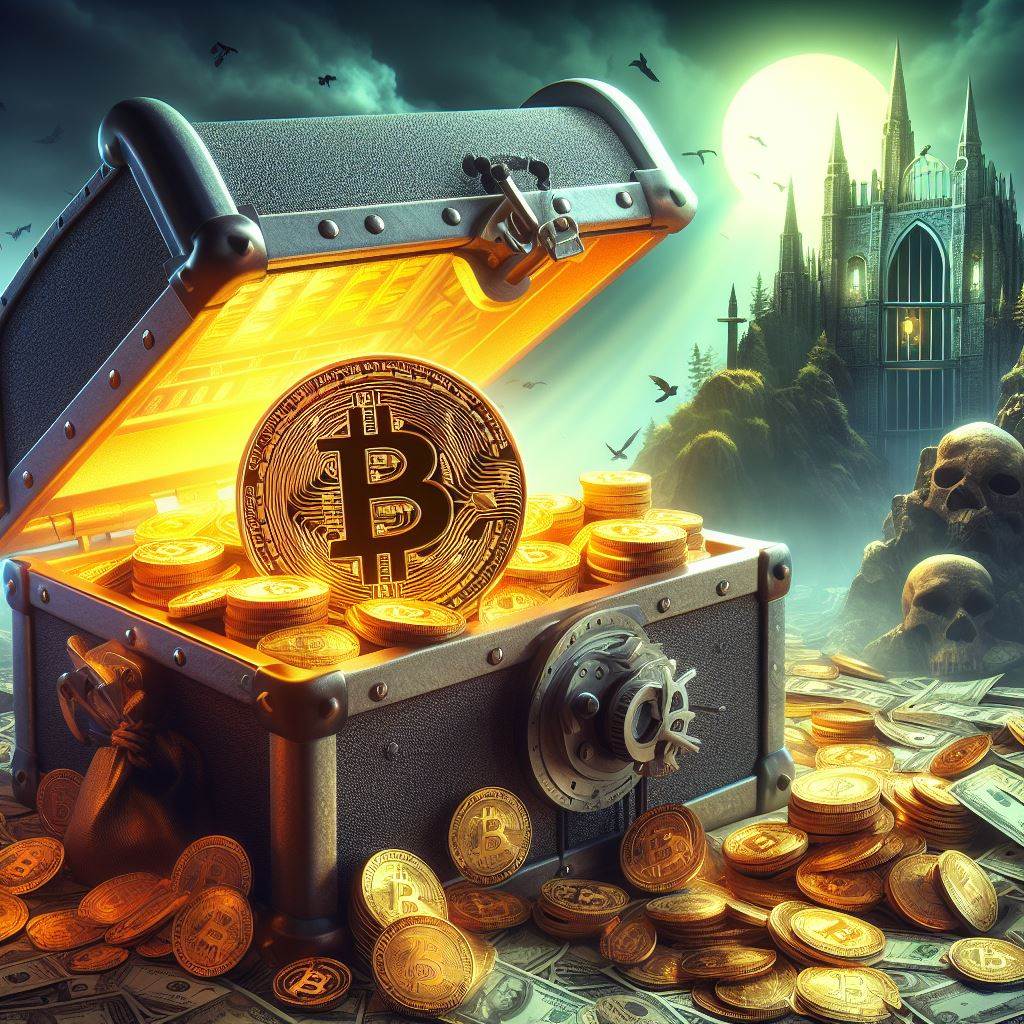Unleashing the Sleeping Giants: The Enigma of Long-Dormant Bitcoin Wallets Transferring 1,000 BTC
Introduction:
Two previously dormant Bitcoin wallets, holding 1,000 BTC collectively, have recently come to life after almost 11 years of inactivity. This unexpected event has triggered curiosity and excitement within the crypto community, leaving experts and enthusiasts questioning the identity and intent behind such transactions. In this article, we will delve deeper into the details surrounding these sleeping giants, discussing potential explanations for their revival and analyzing its implications on the current market landscape.
Background:
In September 2013, two separate Bitcoin wallets identified as ’16vRqA‘ and ‚1DUJuH,‘ each received a deposit of 500 BTC when the digital asset was valued at approximately $124 per coin. Fast forward to May 2024; following recent market fluctuations, the once seemingly insignificant investments have transformed into substantial fortunes, currently valued at over $60 million each. With a remarkable return on investment (ROI) of 49,274.2%, the wallet owners stand to benefit immensely from cashing out their earnings. However, rather than liquidating their assets via popular exchange platforms, both parties chose to move the funds to unidentified wallet addresses, raising questions regarding their motivations and plans moving forward.
Market Impact and Speculations:
Bitcoin whales, or individuals possessing sizable amounts of BTC, typically attract attention due to their influence on market trends and volatility. Consequently, any movement involving considerable quantities of Bitcoin tends to garner close scrutiny from investors worldwide. When older wallets become active again, particularly ones associated with notable figures or events like Satoshi Nakamoto or the Silk Road, rumors frequently circulate suggesting imminent sell-offs aimed at profiting from the increased value. Nonetheless, no evidence supports these assumptions concerning the origin of the newly activated wallets.
Possible Explanations:
While the exact origins of these wallets remain unknown, several plausible scenarios exist to account for their activation:
- Returning Investors: It is possible that the original depositors have decided to tap into their stored wealth after observing Bitcoin’s impressive growth throughout the past decade. By relocating the funds without converting them into fiat currencies, these early adopters might simply intend to securely store their assets elsewhere while retaining ownership.
- Lost Keys Rediscovered: Another explanation involves former Bitcoin users regaining access to forgotten or misplaced private keys tied to their wallets. After successfully recovering control over their accounts, these individuals may choose to distribute the contents across multiple addresses to ensure better privacy and security measures.
- New Ownership: A third hypothesis suggests that new entities acquired the wallets either legally or illegally since their initial creation. These transfers could occur through inheritance, theft, or even acquisitions between interested parties. Upon taking possession, the new proprietors decide whether to maintain, trade, or reinvest the assets based on personal preferences or strategic considerations.
Conclusion:
Despite numerous attempts to identify the wallet owners and understand their rationale behind activating these long-dormant Bitcoin addresses, specific answers continue eluding investigators and spectators alike. As interest in cryptocurrencies continues to expand globally, instances involving resurgent wallet activities will likely persist, offering valuable insights into consumer behavior patterns and evolving market conditions. While pinpointing the precise causes driving these particular transactions remains challenging, ongoing research efforts promise exciting revelations capable of enhancing our understanding of this rapidly developing ecosystem.
